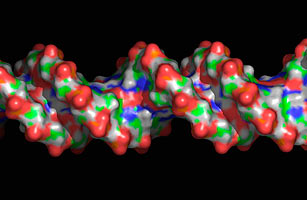HIV provides fives years fewer
 An epigenetic study has shown HIV infection ages the body by about five years.
An epigenetic study has shown HIV infection ages the body by about five years.
US scientists have looked at age-associated changes in 137 patients' epigenomes - the series of genetic 'switches' that turn genes 'on' or 'off' - to estimate the premature ageing effects of HIV.
They say infection with the virus increases the chances of a patient dying by 19 per cent.
Thanks to combination antiretroviral therapy, many people with HIV can be expected to live decades after being infected. Yet doctors have observed that these patients often show signs of premature aging.
“The medical issues in treating people with HIV have changed,” says Howard Fox, a pharamcology professor and one of the authors of the new study.
“We're no longer as worried about infections that come from being immunocompromised. Now we worry about diseases related to aging, like cardiovascular disease, neurocognitive impairment, and liver problems.”
The study looked at epigenetic changes in people's cells, focusing in particular on ‘methylation’; an epigenetic change by which small chemical groups are attached to DNA.
Methylation of DNA can impact how genes are translated into proteins.
“What we've seen in previous studies is that as we age, methylation across the entire genome changes,” said researcher Dr Trey Ideker.
“Some people call it entropy or genetic drift. Although we're not sure of the exact mechanism by which these epigenetic changes lead to symptoms of aging, it's a trend that we can measure inside people's cells.”
By measuring methylation, they discovered that HIV infection led to an average advance in biological aging of 4.9 years, or an increased risk of mortality of 19 per cent.
"We set out to look at the effects of HIV infection on methylation, and I was surprised that we found such a strong aging effect," Ideker says.
"Another thing that was surprising was that there was no difference between the methylation patterns in those people who were recently infected [less than five years] and those with chronic infection [more than 12 years]," Fox adds.
The investigators say it is possible that drugs could eventually be developed to target the kinds of epigenetic changes observed in the study.
However, the more immediate implications are much simpler: people infected with HIV should be aware that they are of greater risk for age-related diseases and work to diminish those risks by making healthy lifestyle choices regarding exercise, diet, and drug, alcohol, and tobacco use.








 Print
Print